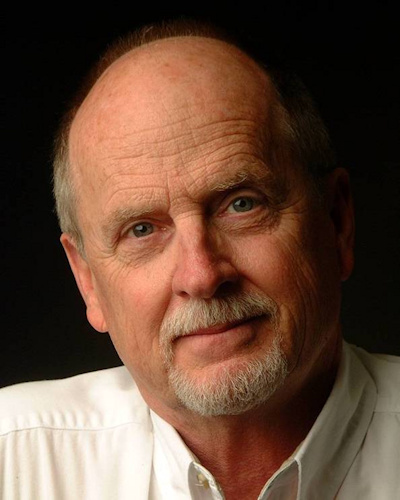<< LAST Contents NEXT >>
About the Author
by Ken Martin, MCC Elder and Pastor (ret.)
In 1993 Mel White was appointed Dean of the Cathedral of Hope Metropolitan Community Church in Dallas, Texas, the world’s largest congregation ministering primarily to LGBTQ Americans. In his 1994 autobiography, “Stranger at the Gate: to be Gay and Christian in America,” Mel describes the thirty painful years he spent trying to overcome his homosexuality through ex-gay therapies, exorcism and electric shock and the relief he felt when finally able to accept his sexual orientation as a gift from God. Commissioned to begin the Cathedral’s national justice ministry, Mel and his partner, Gary Nixon, wondered what they could do to help end similar suffering by their LGBTQ sisters and brothers. In Mel’s words, “Without taking much time to study civil rights movements of the past, we just blundered in.”
On February 1, 1995, Mel was arrested trying to get an appointment with Pat Robertson to help him understand the tragic consequences of his endless antigay rhetoric. While in jail, Mel had a “pastoral call” from Coretta Scotts King’s personal assistant, Lynn Cothren. During their brief visit Lynn gave Mel an autographed copy of Dr. King’s “Why We Can’t Wait” and a polite warning that Mel’s justice ministry would not succeed until he understood M.K. Gandhi’s principles of nonviolent resistance.
After a twenty-one day fast, Mel was released from jail. While reading through Dr. King’s essential writings and speeches, he was surprised to learn how important Gandhi’s teachings had been in shaping Dr. King’s civil rights movement. Mel was about to give up hope in ever working his way through the 50,000 pages of Gandhi’s “Collected Works” when he discovered “The Political Philosophy of Mahatma Gandhi” by Gopinath Dawhan, a rather mysterious colleague and contemporary of Gandhi who managed to create a 350 page map or guidebook through Gandhi’s 103 volumes.
With Dahwan’s guidebook in hand, Mel spent the next five years studying Gandhi’s principles of nonviolence or Satyagraha, “the force of truth” or “soul force.” He also studied nonviolence at the Fellowship of Reconciliation in Nyack, New York, at the King Center in Atlanta, on various nonviolent direct actions with civil right leaders Jim and Phil Lawson and on a journey to India on the anniversary of Gandhi’s assassination as a guest of Gandhi’s grandson, Arun. During that time, Mel began to organize Gandhi’s principles of nonviolence into a NONVIOLENCE HANDBOOK that would shape his justice ministry and with Gary he co-founded Soulforce, an organization dedicated to helping end the religious and political oppression of LGBTQ people.
Gandhi and King had little time to systematize the principles of Satyagraha, or “soul force.” Mel has extrapolated these principles from their essays, diaries, articles, books, speeches, interviews, collected writings and rare copies of original print materials, for example the actual pledges Gandhi and King asked their marchers to sign in South Africa, India, and in the U.S. If you are interested in the original data follow Mel’s footnotes then check it out for yourself in “The Collected Writings of M.K. Gandhi” (Navijivan Publishing) and in Testament of Hope: The Essential Writings and Speeches of Martin Luther King, Jr. (Harper Collins).
Contact: Mel White, P.O.Box 14385, Long Beach, CA. 90803 mel@melwhite.org www.melwhite.org

